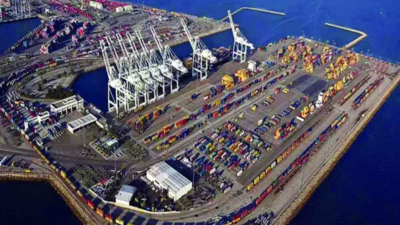As part of his ‘maximum pressure’ approach, US president Donald Trump has threatened Iran with military action if Tehran does not agree to a new nuclear deal with Washington, a move that has hightened tensions in the region and will likely impact India’s trade and security interests in the Middle East.
The threat was made during a phone interview with NBC News, where Trump stated that if Iran fails to make a deal, there would be “bombing the likes of which they have never seen before”. Additionally, Trump mentioned the possibility of imposing secondary tariffs on Iran if an agreement is not reached.
Iran stands firm
Iran has responded strongly to these threats.
Iranian Supreme Leader Ayatollah Ali Khamenei warned that if the US acts on Trump’s threat, Iran will deliver a “strong blow” in retaliation. Iran has also prepared its missile arsenal, with many missiles positioned in underground facilities designed to withstand airstrikes, ready to strike US-linked positions worldwide.
Trump’s threat came after Iran rejected direct negotiations with the US but said it was open to indirect talks through intermediaries like Oman. The tensions between the US and Iran have escalated significantly since Trump withdrew from the 2015 Joint Comprehensive Plan of Action (JCPOA), also known as the Iran nuclear deal, during his first term in office.
Impact on India
If Trump’s ‘maximum pressure’ approach against Iran continues, India’s trade, ties, and strategic interests with Tehran could be affected.
- India-Middle East-Europe Economic Corridor: The project faces significant challenges in the wake of Trump’s threats against Iran. IMEC aims to enhance economic integration between India, the Middle East, and Europe by bypassing traditional routes like the Suez Canal. However, tensions between the US and Iran could disrupt this ambitious initiative. Trump’s aggressive stance against Iran exacerbates regional tensions, threatening trade routes and infrastructure projects. This instability could divert investment away from IMEC, favoring more secure alternatives. As a result, India must navigate these complexities carefully to ensure the corridor’s viability and maintain its strategic influence in the region. The project’s future hinges on diplomatic efforts to stabilise the region and mitigate the impact of US-Iran tensions on IMEC’s development and operations.
- Oil imports: India, which was once the largest buyer of Iranian oil, had to seek alternative sources after the US withdrew sanction exemptions for oil imports. Continued sanctions would maintain this status quo, affecting India’s energy security and forcing it to rely on more expensive alternatives. India has had to diversify its oil import basket, turning to other suppliers such as Saudi Arabia, the United Arab Emirates, and even the United States to fill the gap.
- Trade challenges: India and Iran have been negotiating a Preferential Trade Agreement (PTA) to diversify trade beyond energy. However, US sanctions and tariffs could complicate these efforts by limiting financial transactions and discouraging investments in non-oil sectors. The overall trade between India and Iran has been severely affected by current US sanctions. The bilateral trade volume plummeted from $17 billion in 2018-2019 to a mere $2.3 billion in 2022-2023, representing a staggering decline of over 86%.
Chabahar Port development: The Chabahar Port project, a cornerstone of India-Iran economic engagement, faces potential setbacks due to increased US sanctions and regional tensions. Although the port is considered outside the purview of US sanctions, the overall geopolitical tension and financial restrictions have indirectly affected its development and utilisation. It offers India an alternative route for trade with Afghanistan and Central Asian countries, reducing dependence on Pakistan-controlled transit routes. However, US sanctions have made it difficult for international companies and financial institutions to participate in the project, slowing down its progress. Indian investments and operations at the port have continued, but at a reduced pace. The uncertainty surrounding the sanctions regime has also deterred potential partners and investors, limiting the port’s growth potential.- Regional security: India’s relations with Iran are further complicated by Tehran’s stance in Yemen, which conflicts with the interests of India’s partners, including the US. The Yemen conflict, where Iran supports the Houthi rebels, has created a challenging diplomatic environment for India.
- Competition from China: China’s increasing presence in the region, including a 25-year strategic partnership with Iran, poses a challenge to India’s strategic interests. US sanctions could inadvertently strengthen China’s position by limiting India’s engagement with Iran. There are apprehensions that China might leverage its growing relationship with Iran to gain preferential access to Iranian resources and markets, potentially at the expense of Indian projects.


